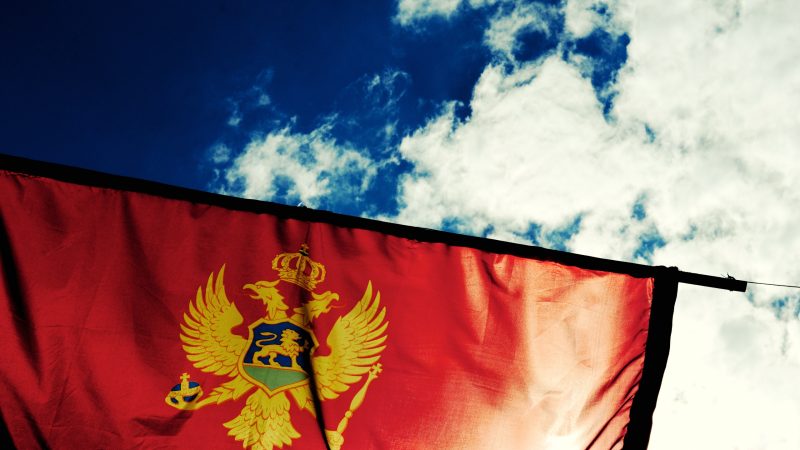
On Sunday, August 30th, the people of Montenegro will go to the polls to vote for a new government at the end of a campaign riven with political mud-slinging, simmering ethnic violence and increasing interference from the Serbian Orthodox Church. The SOC are using this moment to mobilise opponents of a new freedom of religion law requiring the registration of church property.
For much of the 20th century, Montenegro was a part of Yugoslavia. It largely escaped the violent conflict that engulfed the region in the 1990s, and finally became independent from Serbia in 2006 after a peaceful referendum. The SOC had initially laid claim to the property of the Montenegrin Orthodox Church after the fall of King Nikola in 1918, and the controversial new law is designed to require proof of ownership prior to that historic date.
Recent history has seen Montenegro join NATO and begin the accession process to join the EU. But while Montenegro and its neighbours North Macedonia, Albania, Kosovo and Bosnia Herzegovina look increasingly to alliances with Western democracies, Serbia plays a two-faced game of holding hands with Russia whilst half-heartedly pursuing EU accession.
Notwithstanding a variety of issues in Montenegro similar to those in other fledging democracies, such as organised crime and corruption, this small Balkan state of approximately 640,000 is making some progress. Sinisa Vukovic, a native Montenegrin and professor of international relations and conflict management at John Hopkins University, describes Montenegrin democracy as “a work in progress” that will continue to require the support and advice of other Western liberal democracies, as well as that of NATO. Indeed, as he and other Montenegrins point out, prospective EU membership is the guarantor of democracy going forwards.
The SOC was one of the main protagonists in the wars in Croatia and Bosnia in the 1990s, when its clergy frequently appeared alongside notorious war criminals, even blessing the infamous para-military ‘Scorpion’ unit under Milosevic’s command immediately prior to the atrocities in Srebrenica. These facts seem to have evaded British MPs Tim Farron (Lib Dem) and Steve Baker (Conservative), who jointly authored an op-ed in Newsweek at the beginning of July exhorting Nato and Britain “to stand with Montenegro’s Christians”, suggesting that the government forced the law through parliament and has been harassing dissenters ever since.
As John Grogan, former Labour MP for Keighley and chair of the all-party parliamentary group for Montenegro (2015-17), points out in a column for the EU Political Report, the law in question has taken five years of planning and consultation. It is backed by a variety of parties in the parliament and has the support of the Venice Commission, an advisory body of the Council of Europe created in 1990 after the fall of the Berlin Wall and composed of independent experts in the field of constitutional law. The Commission commended the work of the Montenegrin authorities and observed that “providing a new legal framework for the exercise of the right to freedom of religion or belief which takes due account of the current and historical conditions of the country is today a necessity”.
The Farron/Baker Newsweek piece is composed of standard phrases that opposition figures and church leaders in Montenegro use to criticise the newly adopted law on freedom of religion. It came hot on the heels of another Newsweek article authored by Rev Johnnie Moore and Nury Turkel, of the US Commission on International Religious Freedom, which screamed: “Jews, Muslims and Christians are all persecuted in Europe. It must stop now.”
In mainstream Montenegrin media, Serb nationalist opposition parties refer to the DPS (present party of government) as infidels and dream of the Montenegrin coastline being part of greater Serbia again. All of this is a gift for anti-European forces, spurred on by Vladimir Putin and Steve Bannon’s henchmen, who promote retrograde illiberal forces directed against the democratic achievements of Western civilisation, cultivating a special intolerance towards NATO, which is currently the strongest foothold against Russian influence in the Balkans.
With the pandemic limiting the scope of election observations, this is an extremely dangerous time for the stability of not only Montenegro but for the entire region. Those calling for NATO intervention to save the Serbian Orthodox Christians might wish they had read their history books.




More from LabourList
Almost half of Labour members oppose plans to restrict jury trials, poll finds
‘How Labour can finally fix Britain’s 5G problem’
‘The University of the Air – celebrating 60 years of Harold Wilson and Jennie Lee’s vision’